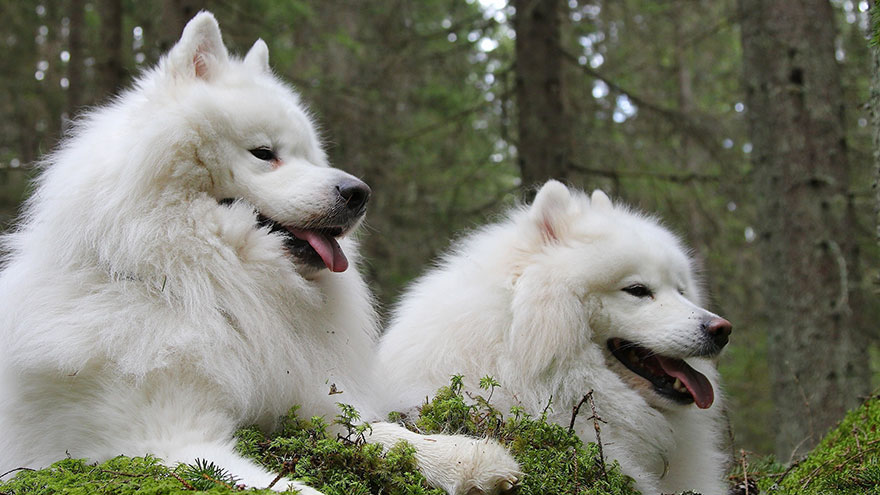Samoyed Health Guide
When it comes to beauty, grace, intelligence, and gentleness, it is hard to beat a Samoyed. Classified as a working dog, this breed is strong and alert, making an excellent dog for just about anyone.
The key to a healthy Samoyed always begins with choosing your puppy from a reputable breeder. Then, provided a good home, proper diet, and exercise, there is no reason that you cannot have a family pet for years to come that is healthy and happy.
Health Problems in the Samoyed
When shopping around for a Samoyed, make sure you know what is and is not acceptable. For instance, the dog should not be long in the back. The reason is that he would end up with a weak back, making work, and some exercise and/or training difficult, if not impossible. Additionally, the breeder should produce dogs that have a medium but that is not long but more muscular. The chest should be deep, the ribs well sprung, and the neck strong.
The good news is that overall the Samoyed is a healthy breed. You will find that the bone is heavier than what most medium dogs have but for speed and agility, the dog must be proportioned properly. For the coat, both undercoat and topcoat should be healthy and formed appropriately. Remember, the coat on a Samoyed is used for keeping the animal cool in the summer and warm in the winter.
One consideration in the Samoyed is called Snow Nose, which means the black nose has a white or pink marking on it. Keep in mind that this does not harm the dog at all. You may see a black nose during the summer with the pink or white returning in the winter. While this appears as if something were wrong, Snow Nose is simply due to changes in the weather associated with the genetics of the breed.

On the other hand, a condition known as bloat is seen in many large, deep-chested breeds to include the Samoyed. With this, the dog’s stomach bloats up from fluid, gas, or both. Typically, bloat is caused by the dog eating or drinking too much or too fast.
By monitoring the amount of food and water, you can usually prevent this problem. Start by feeding your Samoyed more meals but in smaller portions. If bloat occurs and does not go away, you need to seek immediate medical attention in that life-threatening complications can arise.
Finally, the Samoyed is also at risk for hip dysplasia. This genetic condition often affects larger breeds. In this case, the hip joint is deformed, which may not be noticed as a puppy. Depending on the severity of the hip dysplasia, your veterinarian may offer oral medication or injection treatment.
However, in severe cases, surgery is required. When buying your Samoyed puppy, always make sure the mother and puppies have been tested for this disease.
Read More About Samoyed

